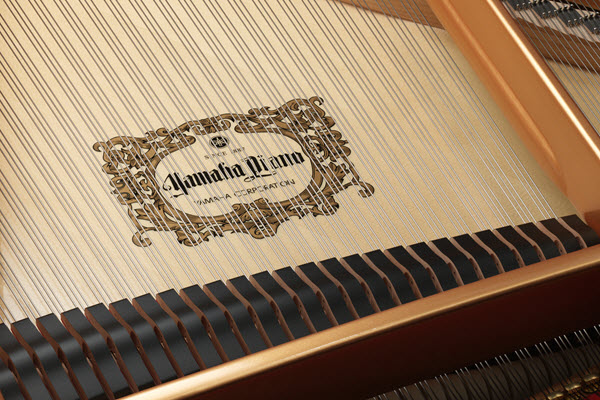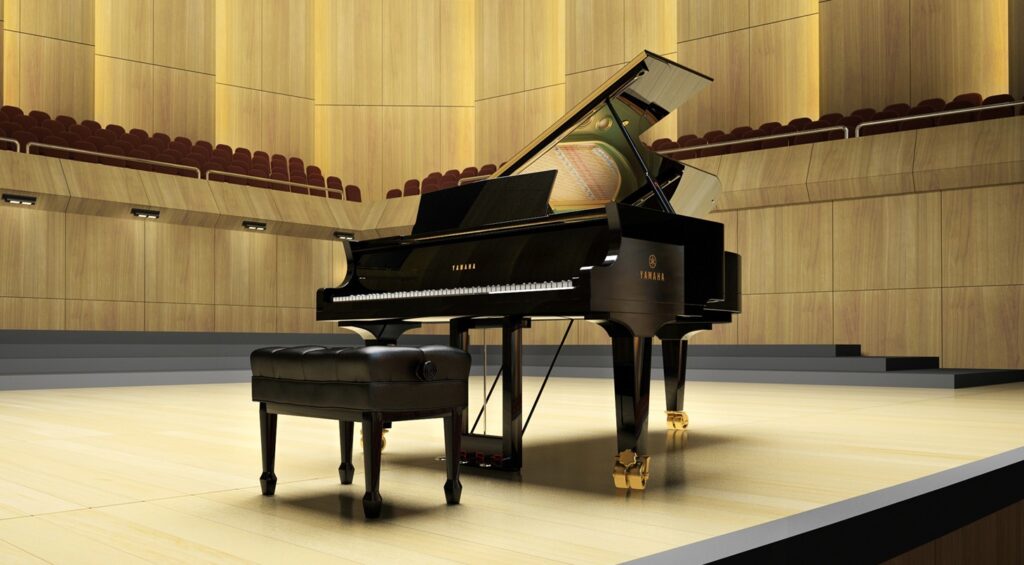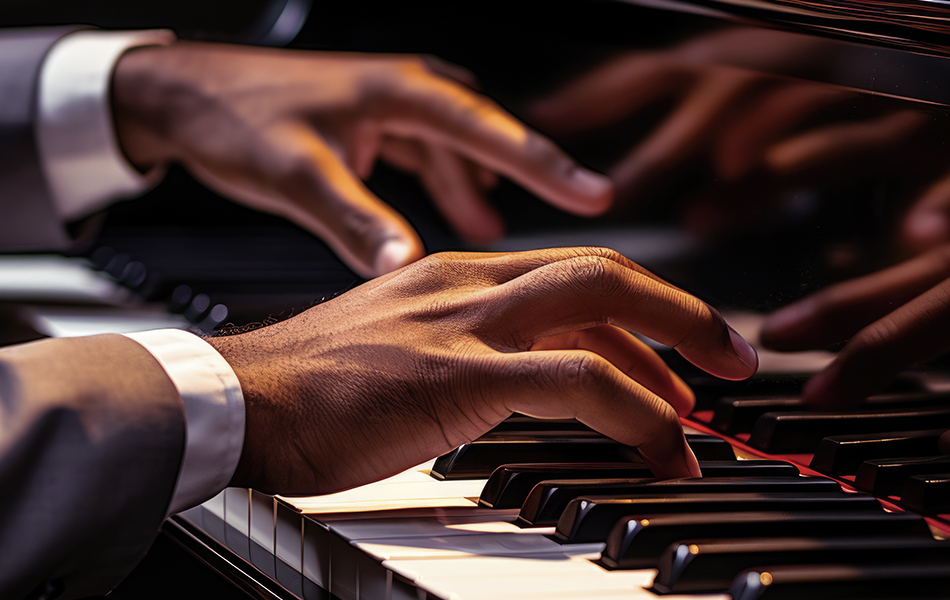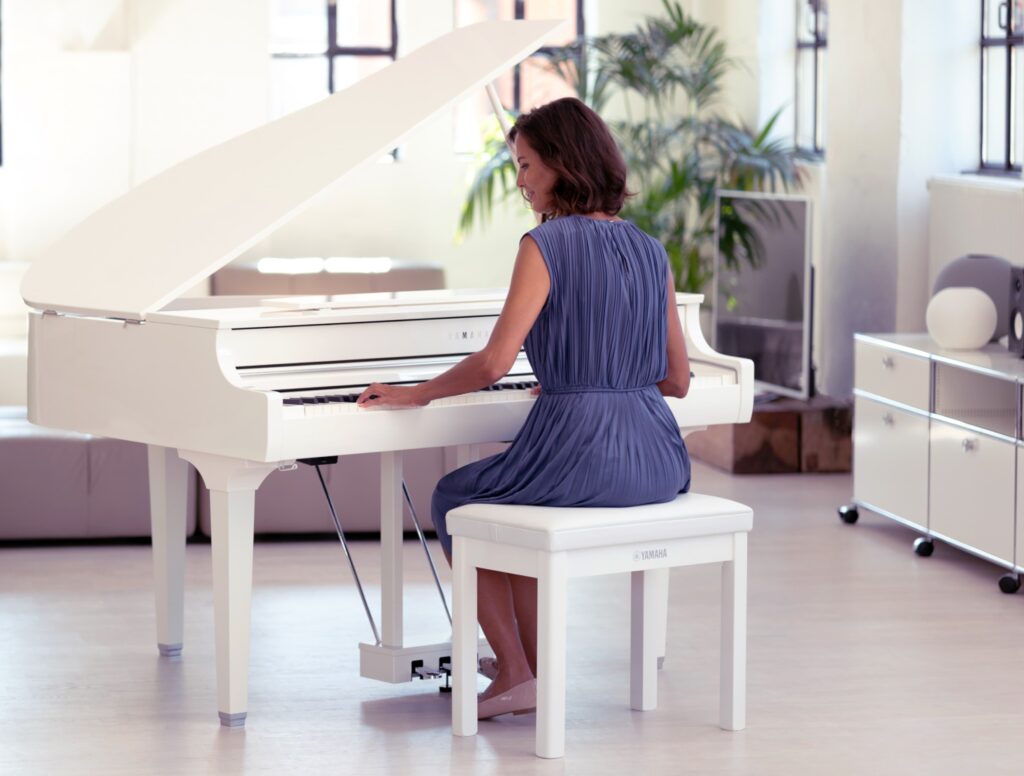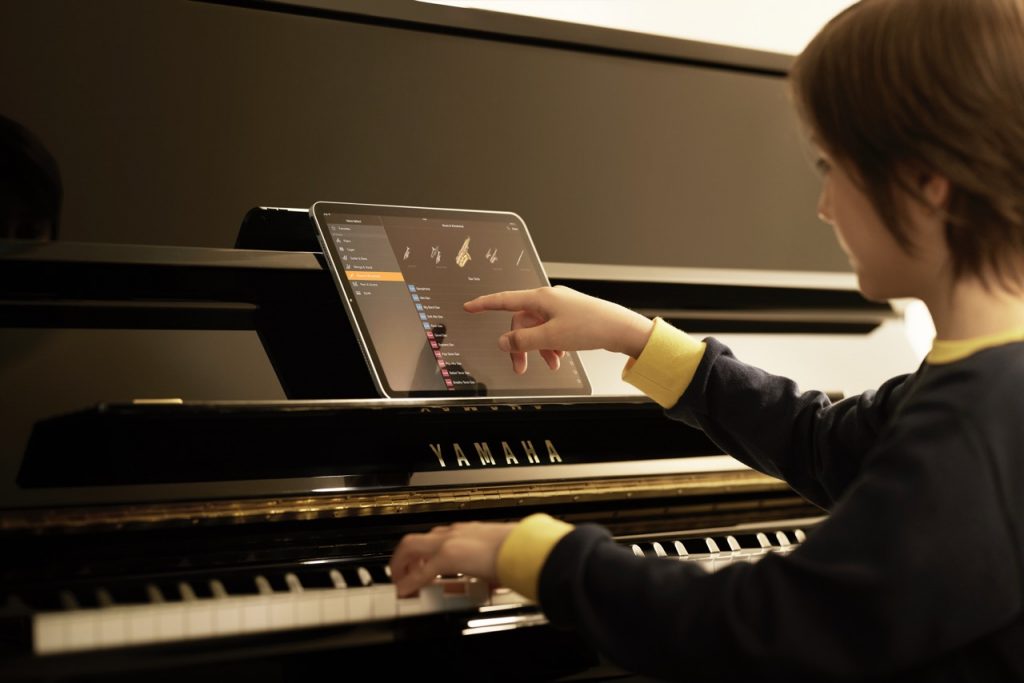Yamaha and the Piano Technicians Guild
Learn about the preeminent organization for qualifying piano technicians.
Sure, there are reviews and word-of-mouth endorsements, but how can you know if a person is really qualified to tune and care for your piano? To ensure you’re entrusting your instrument to a capable craftsman, you’ll want to know about the Piano Technicians Guild — an organization that has a long history with Yamaha.
The Piano Technicians Guild
The Piano Technicians Guild (PTG) is the acknowledged leader and resource for training, registering and sharing information amongst piano tuners, rebuilders and craftsman. Formed in 1957 from the merger of two piano technician organizations (American Society of Piano Technicians and the National Association of Piano Tuners), the PTG has become the #1 resource for technical information, for networking and referrals, and for training in the art of piano care. The Guild runs training classes at their headquarters in Kansas City, Kansas, which also houses a museum of historical instruments. While primarily a U.S. organization, it boasts a membership of around 3,300 people from around the world and holds regional conferences and an annual convention attended by manufacturers and members alike.
Yamaha has a long history with the Guild in recognition of the benefits of having a known network of accomplished professionals to draw upon for their dealer’s needs. Yamaha formed their U.S. company, Yamaha Corporation of America (YCA) in 1960, and immediately started supporting and working with the PTG. They draw on the Guild to find technicians to work on their pianos in the field, to help dealers find competent service people, and to learn about trends in the marketplace. Ryan Ellison, the YCA Supervisor of Piano Services is a long-time member who joined when he first decided to go into the practice of piano service and tuning. He states that he is in contact with the organization almost every working day, and recommends them to all his dealers.
Training and Certification
The training program offered by the PTG is comprehensive, and considered one of the best in the world. Interestingly, it is based on training materials and methods that Yamaha developed in the U.S. for the care of their instruments, and was run for 40 years under the name “The Little Red Schoolhouse.” Now called Grand Action Regulation in 37 Steps, the program was created by LaRoy Edwards, former head of service for Yamaha, before being turned over to the PTG in 2012. A practical guide to the workings of a grand piano, the course teaches technicians all they need to know to adjust and regulate the instrument, as well as tuning skills and best practices. While it was developed as a Yamaha-centric training, Ellison explains that “these are common, baseline things that all pianos need and benefit from. The basic design and technology of the grand piano hasn’t changed that much over the last decades, and the attendees learn skills that translate to most every instrument out there.”
To be certified by the PTG, a technician must pass three tests. The first is a written exam establishing basic knowledge of piano design, tuning concepts and various repair techniques. This is followed by two hands-on evaluations covering practical application of those studies. One is a tuning exam that challenges the technician to match a “master tuning” that was devised by a panel of experts as an optimal target. The judges use extremely sensitive audio equipment to measure the deviation from the desired target. Even though it is common to use electronic tuning devices these days, a technician aspiring to receive PTG certification must show the ability to reach the target goals by ear as well.
The final practical exam covers the technician’s knowledge of assembling both grand and vertical piano actions, and adjusting the myriad of settings of the mechanism, called regulation. This also includes demonstrating skills in the common repairs needed, including working with the wood elements, cloth and felt components, piano string wire and the other materials found in a piano action.
These exams must be performed within a prescribed period of time (four hours each), so the final judging is based both on skills and desired proficiency. Passing these exams confers upon the student the title of Registered Piano Technician. You should look for this qualification (RPT) when hiring a tuner/technician to work on your instrument:
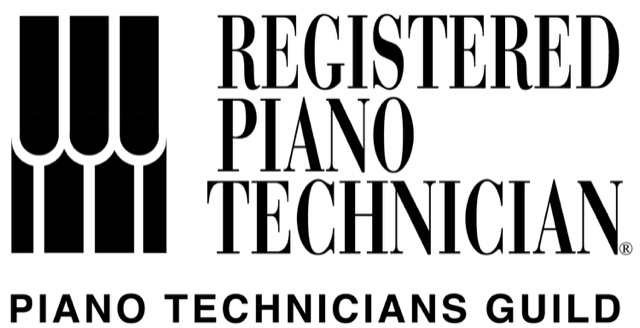
The PTG Convention
Yamaha is also involved in the Piano Technicians Guild’s annual convention. Along with providing pianos for the event and exhibiting their instruments, Yamaha often holds seminars to educate the attendees. In 2022, Yamaha displayed their CFX Concert Grand, their Enspire Pro Disklavier reproducing piano, and the Bösendorfer 280VC Concert Grand piano. The company also held multiple workshops on piano maintenance, including four sessions led by a senior product designer from Bösendorfer. Finally, they sponsored a unique concert where Yamaha Artist Frederic Chiu performed a two-piano concert featuring him playing the CFX in duet with a CFX Disklavier, showing off the latter’s self-playing and synchronized-to-a-Disklavier-TV-performance capabilities. The 2025 PTG convention will be held from July 16 – 19 at the Iowa Events Center and Hilton Des Moines Downtown in Des Moines.










